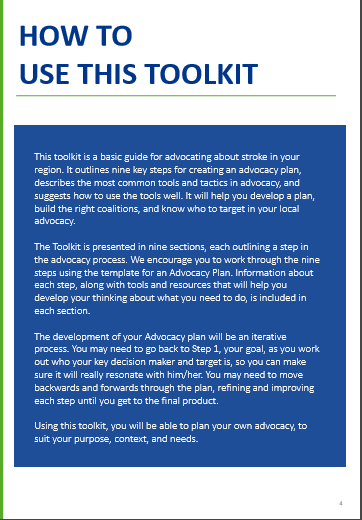
Dec 16, 2016
The WSO Advocacy Toolkit is for individuals who seek to advance stroke policy, elevate the issue of stroke in his/her community and improve stroke outcomes by driving advocacy and change through governments and institutions.
This toolkit will help you advocate for improvements in the health system to address stroke (e.g. gain more funding for stroke units, improve the use of best practice guidelines, ensure better access to stroke treatments, rehabilitation services) in your region.
Please visit www.worldstrokecampaign.org to download the Advocacy Toolkit.
(more…)
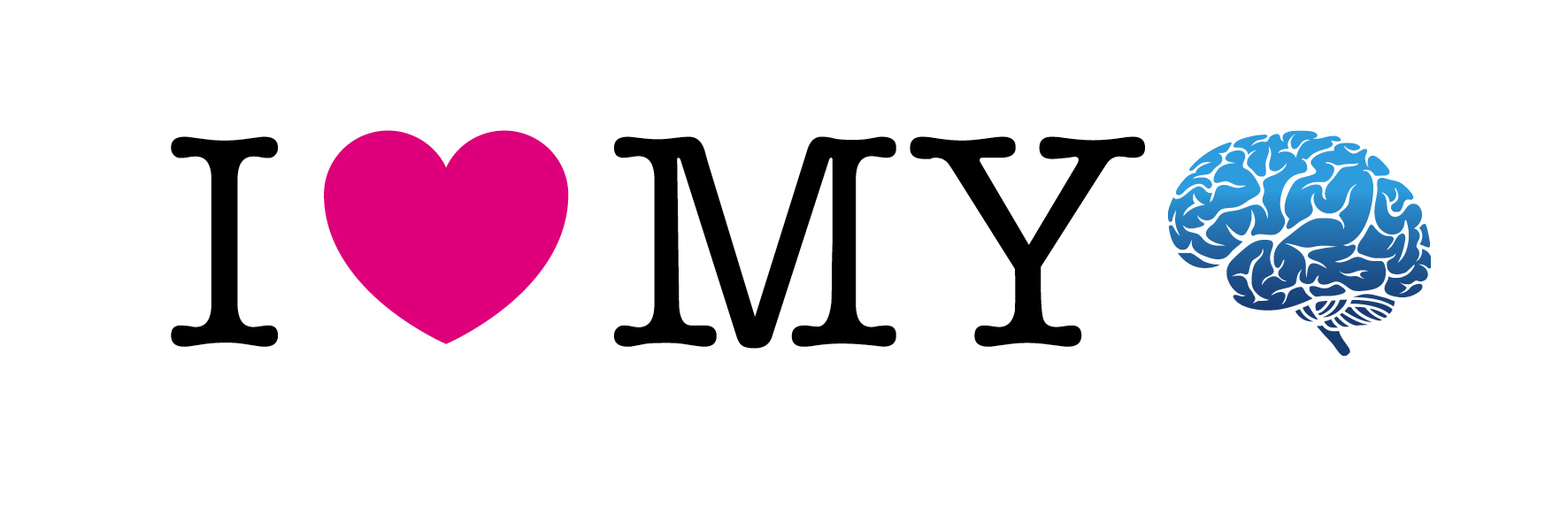
Dec 15, 2016
The European Brain Council has been working with a Member of Parliament (MEP), SAFE, the European Stroke Organisation (ESO), the Atrial Fibrillation Association (AFA) and the Arrhythmia Alliance to organise a workshop in the European Parliament in Brussels on 25th January 2017.
The workshop will focus on Atrial Fibrillation-related stroke and the goal is to make policy makers more aware of this condition and how screening can help prevent AF-related strokes. On the 25th, the audience members will hear presentations on different perspectives of AF-related stroke: the carer story from Jon Barrick (representing SAFE), the importance to ‘Know Your Pulse’ by Trudie Lobban from AF Association & Arrhythmia Alliance, and insight from various physicians and Stroke experts, Neurologists Dr. Didier Leys (European Academy of Neurology), Dr. Geert Vanhooren (ESO) and Cardiologist/Rhythmologist Dr. Bernard Deruyter (European Parliament). There will also be a presentation from a Finnish stroke survivor, explaining how stroke has impacted daily life for him and his family. The session will be moderated by Peter O’Donnell of Politico. (more…)
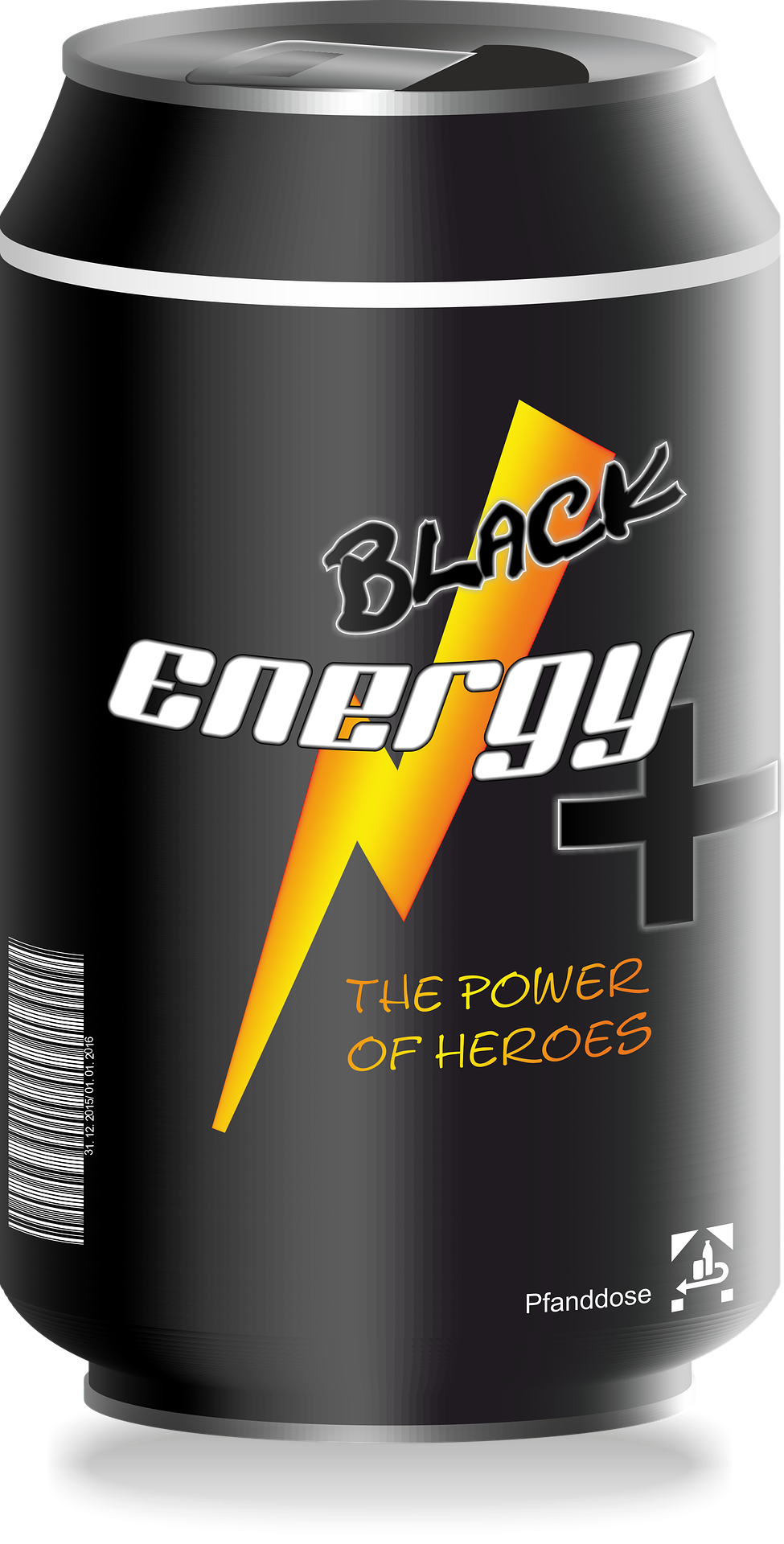
Dec 14, 2016
Investigators at the University of Alabama at Birmingham have presented the first case study of a patient experiencing a hemorrhagic stroke — a brain bleed — following consumption of an energy drink.
In an article in press in the American Journal of Emergency Medicine, the UAB physicians detail the case of a 57-year-old man who developed an intracranial hemorrhage within 15 minutes of drinking a popular energy drink. (more…)
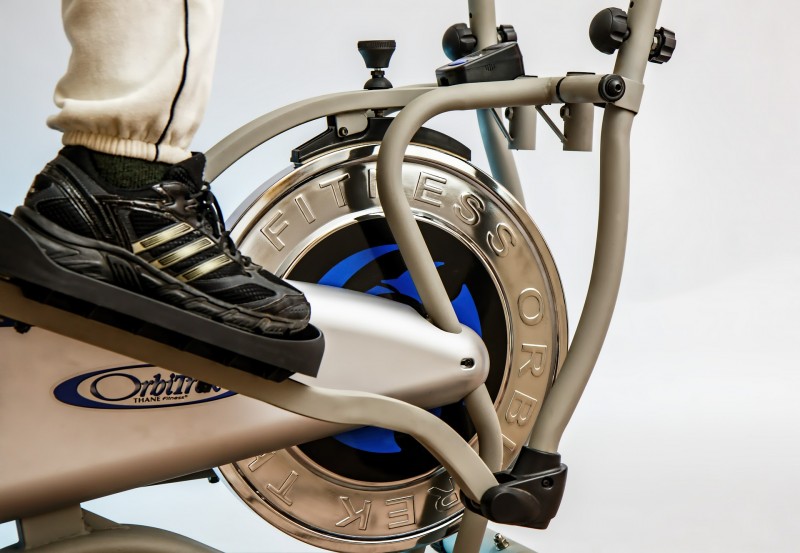
Dec 14, 2016
The after-effects of a stroke can be life changing. Paralysis, speech problems and memory loss occur in varying degrees of severity, depending on the location and amount of brain tissue damage. How far a stroke patient can recover is largely determined by the ability of the brain to reorganise itself. Understanding what can improve this ability is therefore essential in developing the best therapies for rehabilitation.
Voluntary physical exercise is known to have a positive effect on a person’s overall well-being. It delays memory loss in old age and improves cognitive ability. A new study, published in the open-access journal Frontiers in Aging Neuroscience, has linked the positive effects of exercise on the brains of mice to their better recovery after a stroke. (more…)

Dec 10, 2016
Published on: httpss://ncdalliance.org
A European regional meeting on ‘The European Response to Chronic Diseases – the role of civil society’, co-organised by the European Chronic Disease Alliance (ECDA) and the NCD Alliance and co-sponsored by the World Health Organization, is taking place in Brussels between the 12th and 13th December, 2016.
This event will convene Civil Society Organisations (CSOs) from across the region while serving to follow-up on the adoption of the 2016-2025 WHO European action plan for the prevention and control of NCDs. (more…)
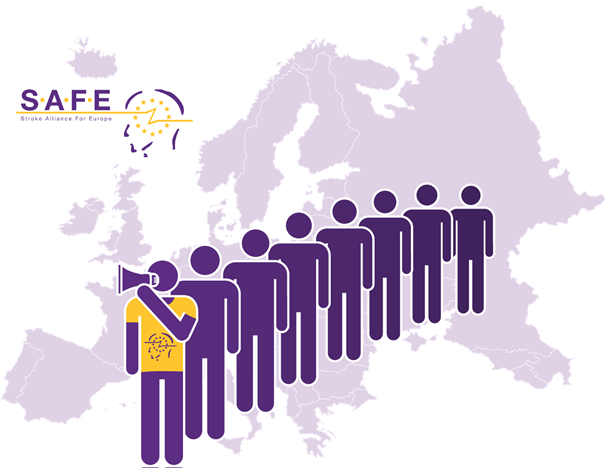
Dec 10, 2016
During the year SAFE received applications for membership from organisations in Luxembourg, Georgia, Poland and Portugal. France AVC have also applied to rejoin SAFE.
At the General Assembly held on 9th December 2016 in Amsterdam, the following membership applications were accepted: Luxembourg, Portugal, Georgia and France. (more…)
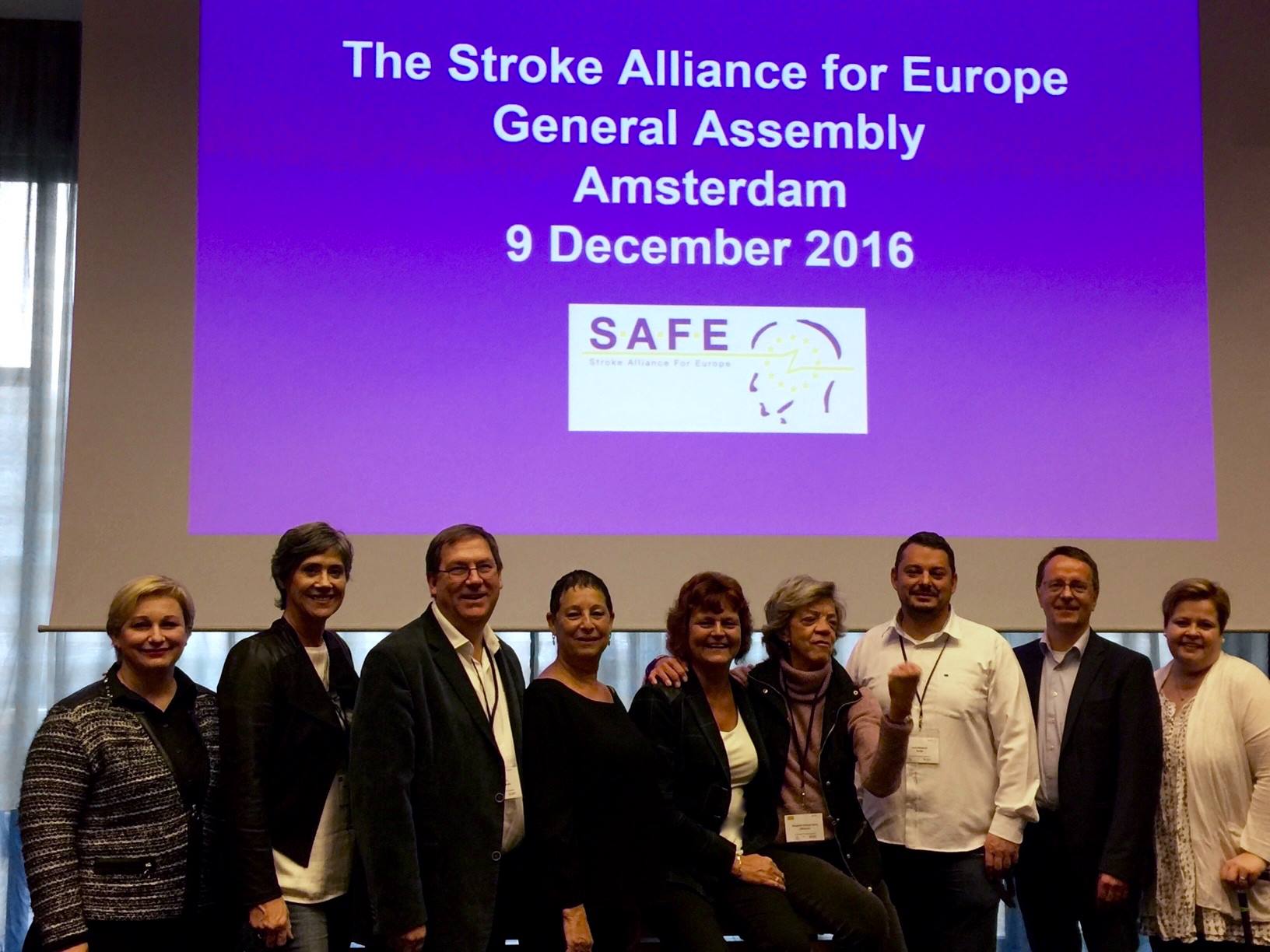
Dec 10, 2016
At yesterday’s General Assembly, on 9th December 2016, SAFE delegates voted for the new board members.
As SAFE’s President Jon Barrick stressed out, much has changed for SAFE over the last 18 months, with a continually growing membership, more paid staff, a closer relationship with the ESO to proposed meetings with the EU Health Minister, and much more which was reported on at this year’s General Assembly held in Amsterdam.
During the SAFE board meetings this year, the board have discussed at length the requirements that are expected from SAFE into the future. (more…)
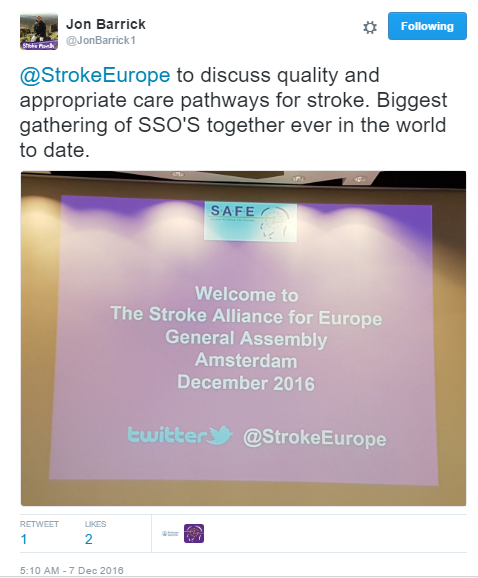
Dec 8, 2016
Amsterdam, 8th December 2016 – The Burden of Stroke is the main topic of this year’s Working Conference, with two days dedicated to analysis of the preliminary research findings around 12 indicators of care.
After a successful start yesterday, and a full day of discussion based on preliminary findings, SAFE delegates continue to work on recommendations on how to improve stroke prevention, acute & long-term care across 33 European countries.
This is just a start of an important journey which will culminate in second week of May 2017, the European Stroke Awareness Week, at the big launching event. (more…)
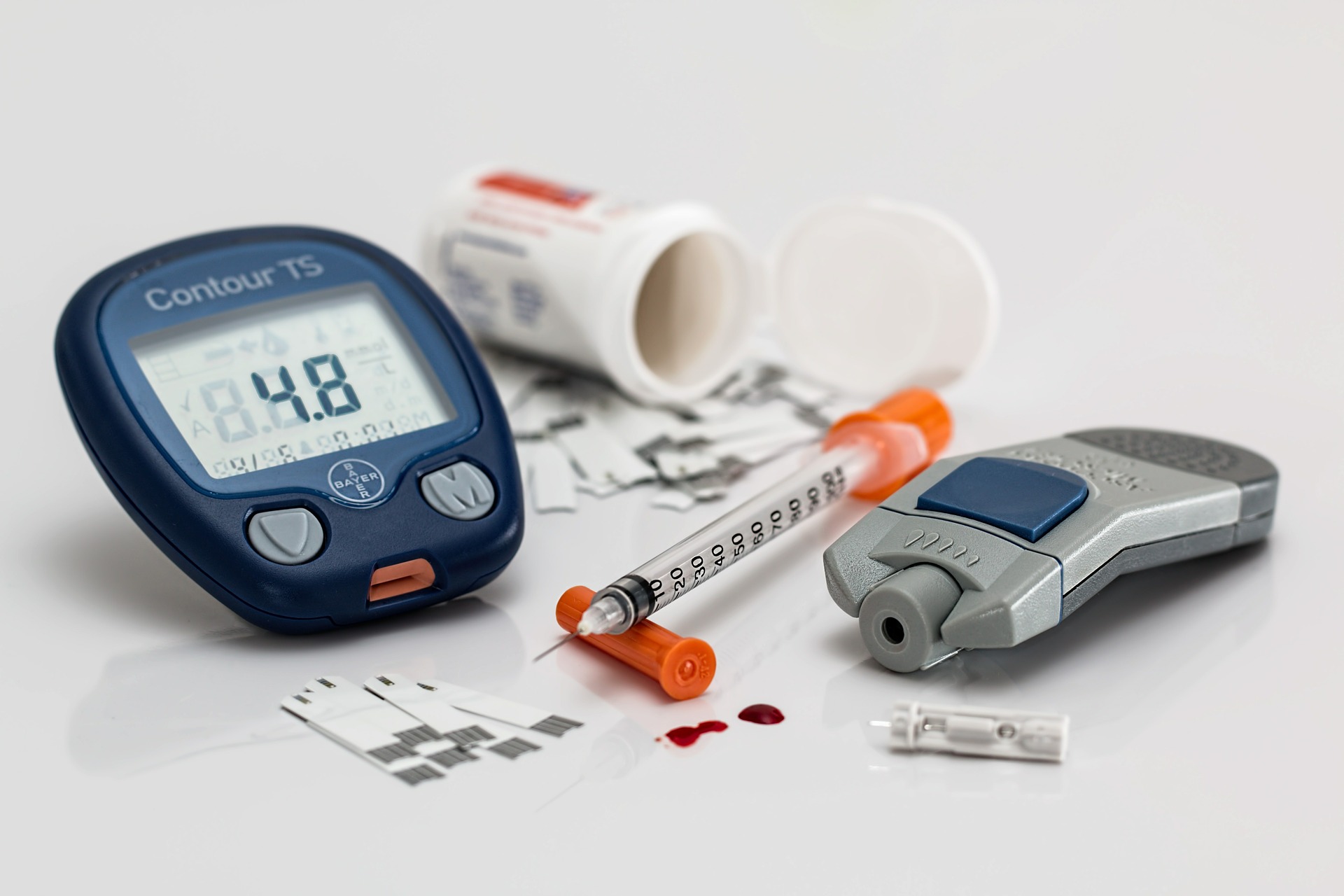
Dec 2, 2016
It promises to be a simple and elegant strategy to heal diabetes type 1: Replacing the destroyed beta-cells in the bodies of patients with newly-produced insulin-secreting cells. For years, researchers around the globe tried various approaches with stem or adult cells in order to induce this transformation. Their effort lead to a fundamental understanding of the molecular mechanisms involved in the development of beta cells — however, a compound capable of doing the trick was missing. (more…)

Dec 2, 2016
Researchers at The University of Manchester have discovered that a potential new drug reduces the number of brain cells destroyed by stroke and then helps to repair the damage.
A reduction in blood flow to the brain caused by stroke is a major cause of death and disability, and there are few effective treatments.
A team of scientists at The University of Manchester has now found that a potential new stroke drug not only works in rodents by limiting the death of existing brain cells but also by promoting the birth of new neurons (so-called neurogenesis). (more…)














